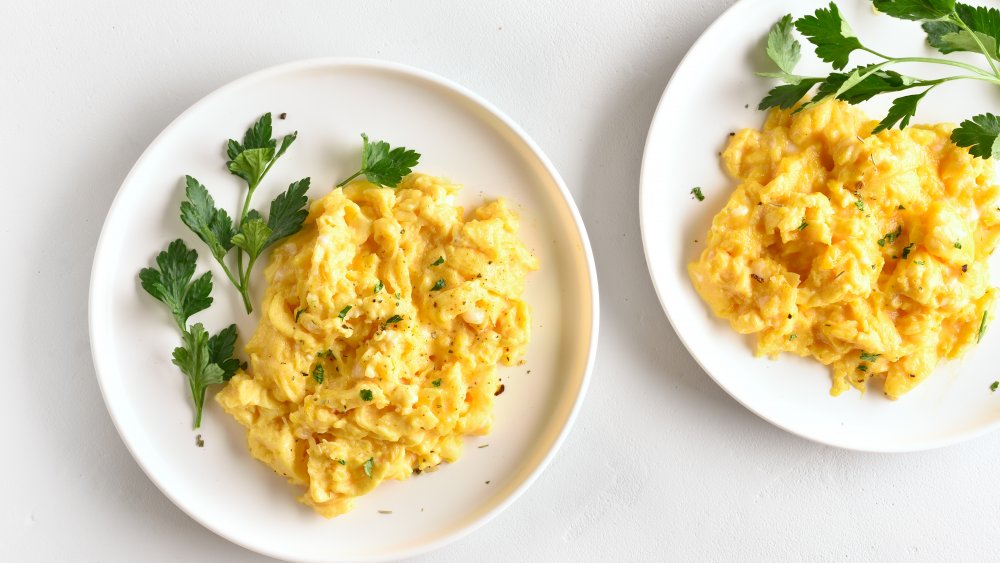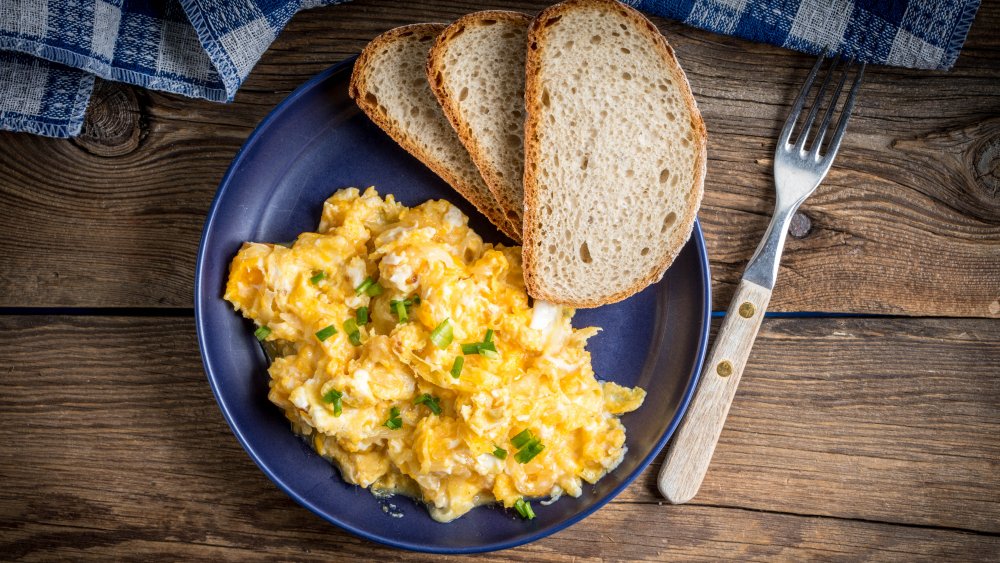Read This Before Salting Your Eggs
Most home cooks throw some salt into their scrambled eggs without thinking twice about it. However, professional cooks like Gordon Ramsay would like them to know that they're doing it all wrong. Apparently adding salt to eggs can cause them to "go gray" and become watery (via Huffington Post).
But is this just Ramsay's personal opinion? Do others in the food industry promote the same saltless way of making eggs? And what is the science behind eggs and salt?
Culinary Director Daniel Gritzer decided to break down Ramsay's claim with a deep dive into egg chemistry and an egg cooking experiment of his own (via Serious Eats). He had also received advice from a chef that salt would, instead of causing the eggs to break down and become watery, become too tough instead. The scientific thinking behind this is that when salt is mixed with eggs, it encourages the egg to coagulate quicker, which can lead to it becoming more tough.
To get a better handle on what salt actually does to eggs, Gritzer decided to experiment with how long eggs are exposed to salt and whether the length of exposure altered the texture or taste of the finished product. According to Gritzer, the longer the egg was exposed to salt, the more time it had to coagulate, so in theory the egg exposed to salt for the longest period of time should be the toughest.
Setting the story straight with an experiment
Gritzer scrambled five sets of three eggs, all of which contained 1/8 teaspoon of kosher salt. The salt was introduced to the eggs at 60, 30, 15, 5, and 0 minutes before cooking.
The results of his experiment were rather unexciting. All of the eggs tasted the same, he said, and were nearly indistinguishable. "If anything, the eggs that sat with salt for the longest were more moist and tender than the eggs that were exposed to salt for less time," Gritzer concluded, but added that he "[couldn't] stress enough that the differences were incredibly subtle."
Gritzer's takeaway is that salt might not be a huge component when it comes to the finished product; the most important factor is how to cook the eggs. Making sure that they're not overcooked, and removing the eggs from heat just before they're finished to avoid overcooking can produce a splendid scramble.
One man's moist and tender, however, is another man's "watery," so although it doesn't appear that salt makes eggs tough, perhaps Ramsay actually does have a point. Take that with a grain of salt.

